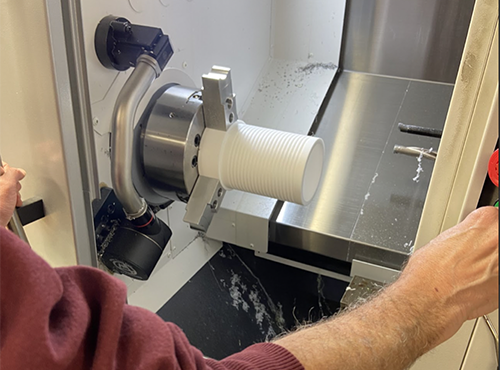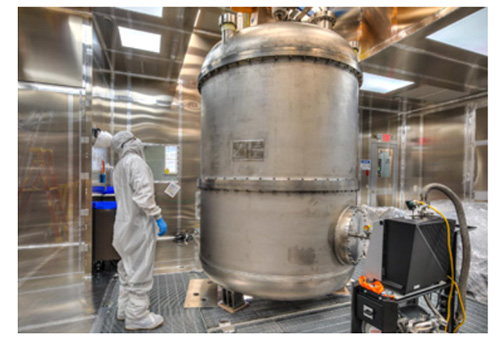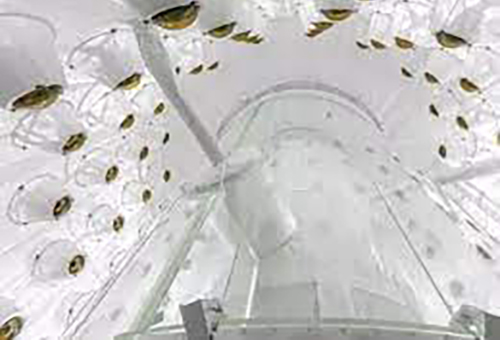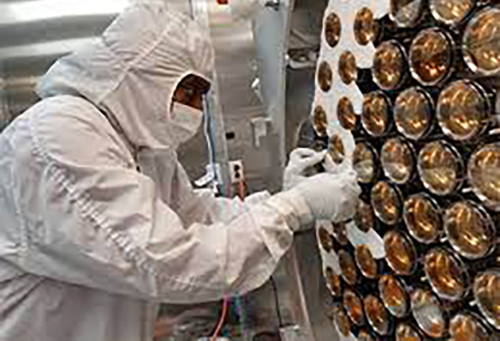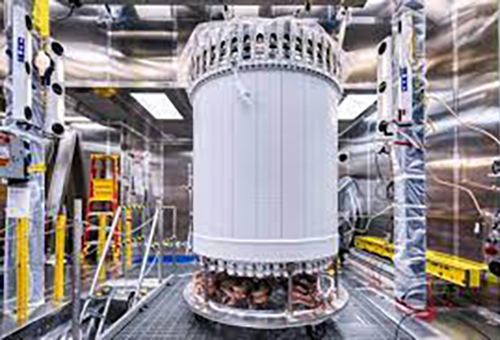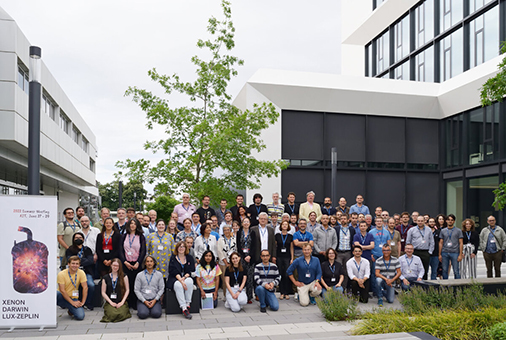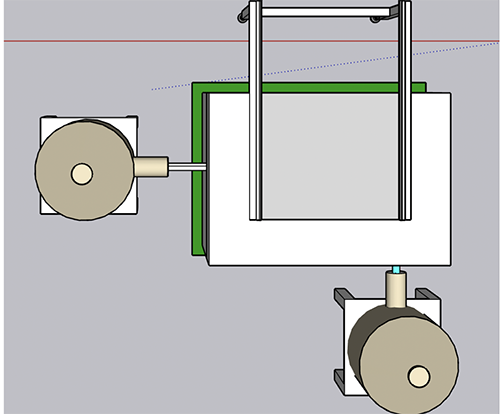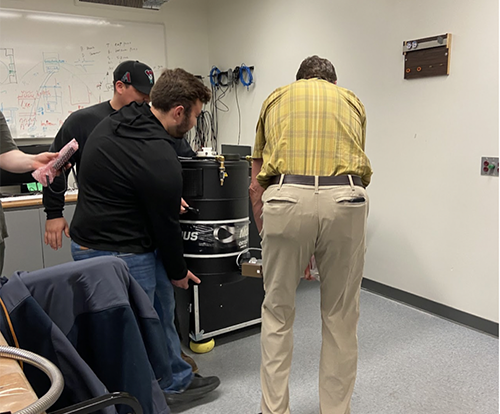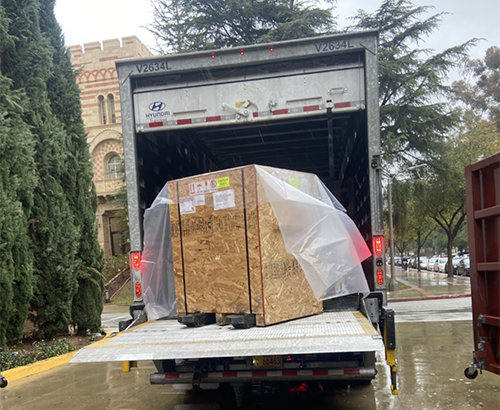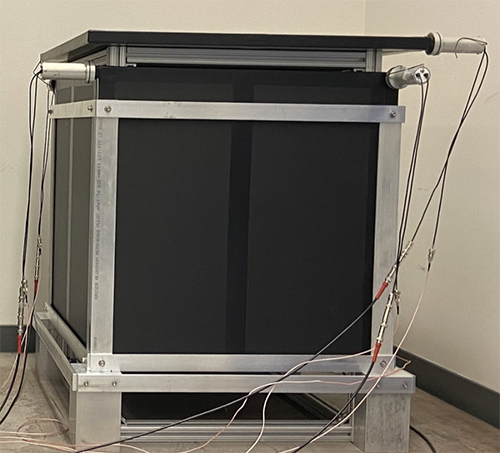LUX-ZEPLIN (LZ) Experiment
LUX-ZEPLIN (LZ) Experiment: Noble liquid Xenon dark matter detector selected by the Department of Energy as the U.S. flagship dark matter detector. Read more here.
- Working on LZ data analysis, detector MC simulations and hardware/operations.
XLZD Experiment
Consortium created by LZ, XENON and DARWIN experiments to build a next-generation dark matter detector
- Working on calibration R&D projects that will enhance the confidence of the future XLZD as well as the current LZ detector in claiming a dark matter signal detection.
SNOWBALL Experiment
Novel particle detector technology utilizing supercooled water which has the potential for multidisciplinary research; e.g. in light dark matter searches and in understanding cloud formation and climate change.
- Working on SNOWBALL hardware and image data analysis optimization
- Temperature profile for a typical event [link]
Low Background Counting Detectors
Working on developing expertise in low background counting at UCLA in order to work in collaboration with some national labs (e.g. Berkeley, Livermore) and SURF on detector material assay for the next generation of dark matter detector.
- Coupled to this low background counting project, we are also building a cleanroom in-situ to investigate different techniques that could reduce surface contamination during the assembly phase of future dark matter detectors.
Noble Element Simulation Technique (NEST) Collaboration
Working on modeling the microphysics of particles interactions in noble element detectors (like LZ) and the main signals formation (aka S1 and S2 lights) as illustrated below

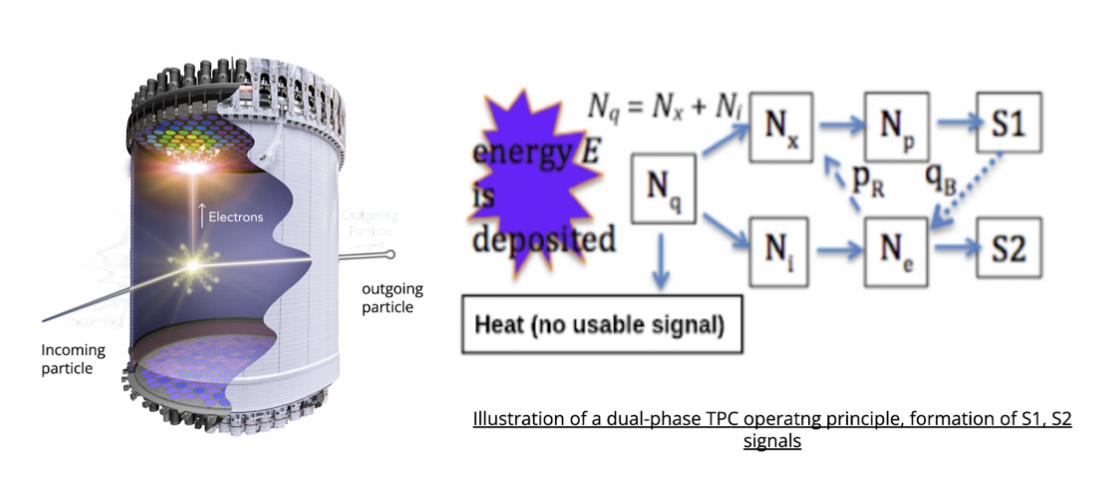
EXCALIBUR: In-situ Xenon TPC calibrationsn
In-situ measurements and characterizations of various types of electron recoils from single beta, double beta, gammas, and other ER processes and fabrication of novel and low-energy electron-recoil and nuclear-recoil source
